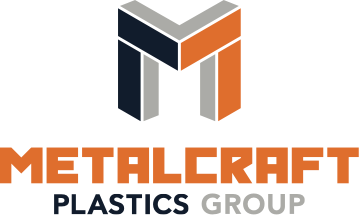Whether it's fuel tanks, hydraulic tanks or any other application, when it comes to rotomolded parts, we're your partner for the cost-effective design, production and assembly of plastic molded products.
Rotational molding, also known as rotomolding, is a thermoplastic molding process that works well for one-piece hollow parts and double-walled open containers. Rotomolding is often used for parts that need to have uniform wall thickness and be strong and highly stable. Rotomolded pieces can also have a customized appearance. This is because the soft metal used for the tooling can easily accommodate surface finishes such as logos, texture, symbols and lettering.
In rotomolding, a hollow mold is filled with powdered plastic resin. The mold then starts to rotate and is put inside an oven where it continues to rotate so the resin melts and coats the walls of the mold. The mold is then cooled, and the resin hardens. When the mold is opened, the finished part is removed. Unlike thermoforming, rotomolded pieces have no seams.
Advantages of Rotational Molding
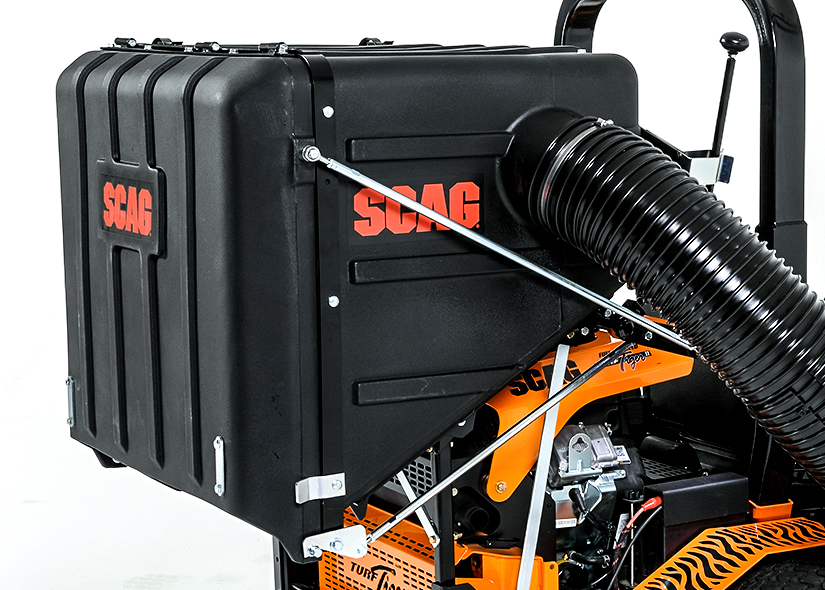

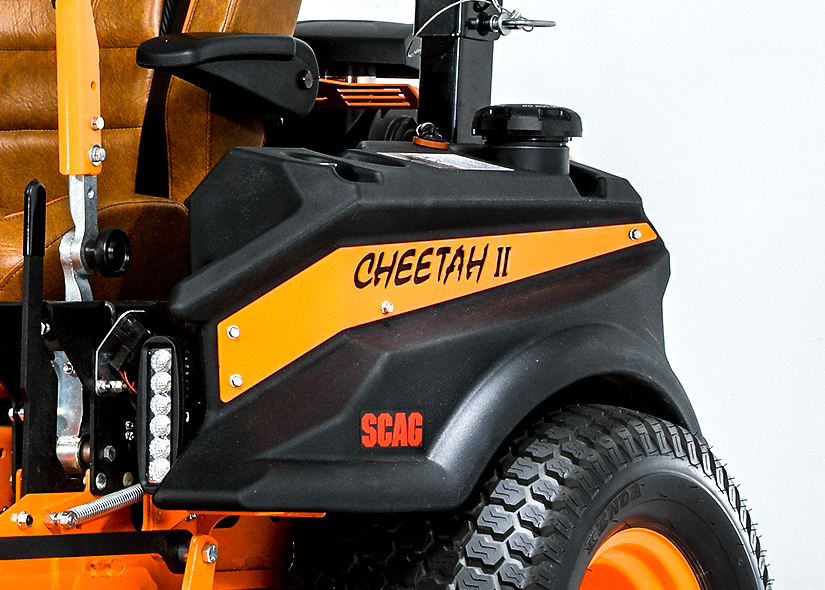

Due to low operating pressure, rotomold tooling can be crafted from low-cost metals such as aluminum.
Continual rotation of the mold coats the walls evenly during both the heating and cooling processes.
Gas tanks are a great candidate for rotomolding because both Triple wall construction or Single wall with fluorination containers can be produced without secondary processing.
Because the end result is just one piece it eliminates the need for joining techniques which create weak spots.
the soft metal of the tooling easily accommodates surface finishes such as textures, logos, symbols, and lettering.
Our customer—Scag Power Equipment—was experiencing a shortage of fuel tanks due to quality issues on the production line. This shortage was holding up the assembly of Scag mowers. By analyzing the quality of failed tanks, we were able to determine that modifications in the production process could improve finished tank quality, helping ensure more finished tanks would meet requirements and make their way to the assembly process.
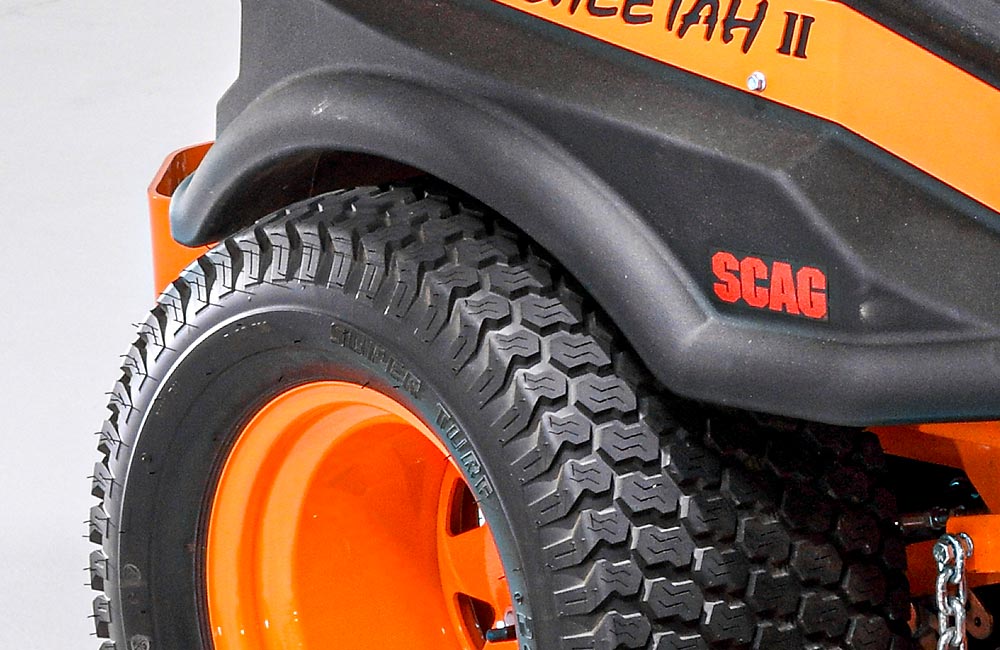

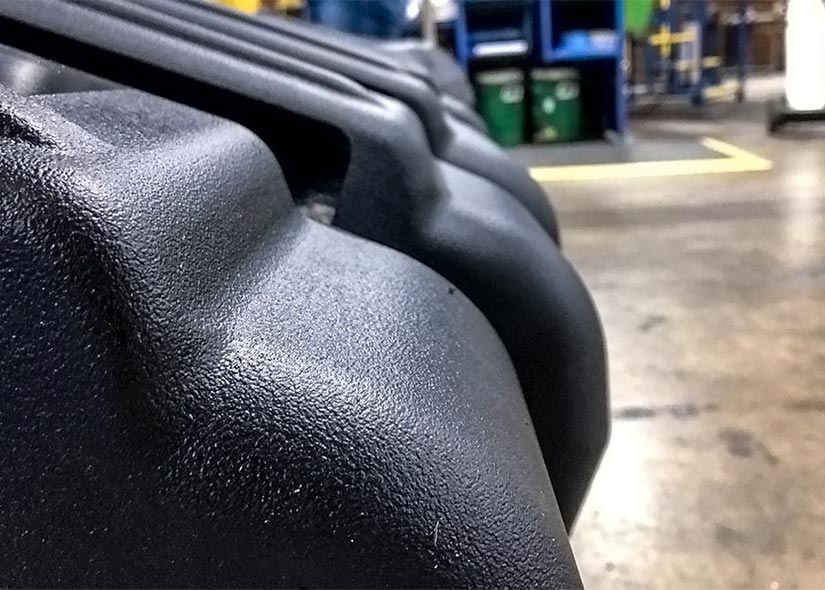

An analysis of tank quality revealed that environmental conditions were affecting the structural quality of the finished tanks. When plastic granules are melted and poured into the mold, they take on atmospheric moisture. This may not seem like a big deal, but in the drying and hardening process, it actually matters quite a bit.
Visually, the exterior of the Scag tanks appeared veiny. But that wasn’t the worst part. Moisture was causing the structure of the plastic to be weak in places, affecting the integrity of the tanks.
Fixing the problem was surprisingly simple. Metalcraft Plastics Group took steps to create a climate-controlled environment for tank production, and quality issues were subsequently resolved.
Metalcraft Plastics Group is one of just a few plastics manufacturers where the rotocasting machines are housed in a climate-controlled (temperature and humidity) environment. Treating the air around the rotomolding process helps ensure humidity has no effect on the end quality of products and drives consistency within our factory.
Once Metalcraft Plastics Group took charge of production, ensuring that Scags tanks were manufactured in a low-humidity environment, quality of the finished tanks was no longer an issue. Assembly of Scag mowers was no longer impacted by a shortage of finished tanks, and Scag was better able to meet consumer demand.
3,000 +
Current Number of Tanks Produced Weekly© Metalcraft of Mayville. All Rights Reserved.
